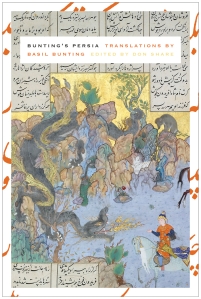"...the Imagination (or love, or sympathy, or any other sentiment) induces knowledge, and knowledge of an 'object' which is proper to it..."
Henry Corbin (1903-1978) was a scholar, philosopher and theologian. He was a champion of the transformative power of the Imagination and of the transcendent reality of the individual in a world threatened by totalitarianisms of all kinds. One of the 20th century’s most prolific scholars of Islamic mysticism, Corbin was Professor of Islam & Islamic Philosophy at the Sorbonne in Paris and at the University of Teheran. He was a major figure at the Eranos Conferences in Switzerland. He introduced the concept of the mundus imaginalis into contemporary thought. His work has provided a foundation for archetypal psychology as developed by James Hillman and influenced countless poets and artists worldwide. But Corbin’s central project was to provide a framework for understanding the unity of the religions of the Book: Judaism, Christianity and Islam. His great work Alone with the Alone: Creative Imagination in the Sufism of Ibn ‘Arabi is a classic initiatory text of visionary spirituality that transcends the tragic divisions among the three great monotheisms. Corbin’s life was devoted to the struggle to free the religious imagination from fundamentalisms of every kind. His work marks a watershed in our understanding of the religions of the West and makes a profound contribution to the study of the place of the imagination in human life.Search The Legacy of Henry Corbin: Over 800 Posts
Tuesday, February 21, 2012
Bunting's Persia
Forthcoming: Bunting’s Persia
Edited by Don Share, this slim anthology
collects Basil Bunting’s translations from Persian poetry by Rudaki,
Ferdowsi, Manuchehri, Sa‘di, Hafiz, and Obaid-e Zakani, including some
that are previously unpublished. Bunting, who is widely regarded as one
of the most important British poets of the twentieth century, proved
unusual in his deep and abiding interest in Middle Eastern culture.
Here, he renders poetry of remarkable tonal and emotional range in
characteristically clear and resolute language.
“Reading Bunting’s translations, I am
struck again by how fresh and strong they are, how vivid in their
feeling, and how he digs into the spirit of the originals—a kind of
passionate excavation work.”—Dick Davis, translator of The Shahnameh: The Persian Book of Kings
Subscribe to:
Post Comments (Atom)









No comments:
Post a Comment